"The Flash Season 7" Review
In a TV landscape that has been massively filled up with so many shows based on comic book properties with all different kinds of quality, no other show makes me more sad with its current state like "The Flash". The original spin off of the now defunct "Arrow", once the beacon of hope of what a great superhero show on network TV could be, has truly fallen to new lows. Despite a sign of some hope with its sixth season finally reversing a downward trend that hit its nadir with the fourth and fifth season, nothing could have ever prepared us for the pile of awful that awaited us for the majority of Season 7, even as it tried to pick itself up at the end.
Obviously, there will be a big desire to point fingers and for heads to roll as to why the recently finished Season 7 turned out the way it did. One can easily point a finger to the ongoing COVID-19 pandemic, which most famously forced the improved sixth season to end prematurely, and make filming new seasons much more of an ordeal with new strict protocols in place. Unfortunately, you can't use the pandemic as an excure to give the show a free pass for the questionable story arcs, the atrocious writing, the shoddy special effects that plagued this season, particularly when you see another show in the same network, like the excellent "Superman & Lois", deliver a stellar season with a good story, some smart writing and amazing effects work, all filmed with pandemic protocols in place.
What's most disappointing about all of this is that, very early on, there was no sign "The Flash" was about to sink to new lows, specially with its pretty good season premiere episode, "All's Wells That Ends Wells". Originally designed to be the sixth season's third-to-last episode, executive producer Eric Wallace and company managed to properly retool one of the previous season's climactic episodes into an effective season premiere that couldn't quite set up the season to come, but managed to keep some of the momentum from its previous season and serve as a fitting tribute to one of the show's true MVP's, Harrison Wells, played by Tom Cavanagh (who officially departed the show as a series regular alongside the other MVP, Carlos Valdes, who played Cisco).
Following the premiere, the show was deadset in bringing some unfinished business to a close in regards to the loose end that was the "Mirror Mistress" arc that dominated the second half of Season 6 following the "Crisis on Infinite Earths" crossover. The second episode of Season 7 (originally planned as the penultimate episode last season) titled "The Speed of Thought", ended up being one of the most exciting episodes the show had since the heyday of the first three seasons, serving as a great acting showcase for Grant Gustin's Barry Allen as a stone cold thinker, with some clever use of speed, a show stopping battle with a velocity-powered Killer Frost and a chilling ending that promised an exciting conclusion to the Mirror Mistress arc. Early on, Season 7 was firing on all cylinders.
Then came the third episode, "Mother", originally the Season 6 finale. And everything went to hell.
This is one of those episodes where someone can make the excuse the pandemic screwed it over, with the idea of a body snatching invasion not being able to be properly executed with the restrictions in place. However, the problems with this episode go bigger than just scale. This makeshift "season finale" was a mess of a smorgasbord of ideas, like a rush job that saw the rebirth of the Speed Force (which was "killed" halfway through the "Mirror Mistress" arc) all through the power of Barry and Iris' love (I'm not kidding), the defeat of the Mirror Mistress coming down to both Barry and Iris holding hands with her and looking at her clones like it was the equivalent of the Care Bear stare (yeah, still not kidding), all while the show pulled the most insulting, shoddy job imaginable to write off the character of Ralph Dibny AKA Elongated Man (whose actor, Hartley Sawyer, got unceremoniously fired in 2020 when some old, horrible racial tweets were dug up in the height of last summer's BLM protests).
It was an absolute mess of an episode that, had it aired when it was intended, it would have ended Season 6 in the absolute lowest of low notes for the show, and it would have immediately squandered the good will the season gathered with trying to reverse the show's fortunes after the incredibly mediocre Season 4 and the incredibly disappointing Season 5. "Mother" was a historically bad episode for the show, and it cast a dark shadow on the rest of Season 7 that festered for a bit before things got truly bad.
Season 7 started properly with the fourth episode, "Central City Strong", the official beginning of what producer Eric Wallace calls the third "graphic novel". When Wallace took over as showrunner in Season 6 after former EP Todd Helbing departed at the end of Season 5 to helm "Superman and Lois", one of his big initiatives was to divide the show's long seasons into distinct story arcs all with a beginning, middle and end, and those arcs would be called "graphic novels". Each season under his belt would be divided with at least two graphic novels so that one big story arc doesn't dominate an entire season, specially if it's not working (which is what sunk both Season 4 and 5 when those respective seasons' Thinker and Cicada stories couldn't quite carry a long 22-23 episode season). Two years ago, I wrote an editorial near the end of Season 5 about the show needing to do something else with its format, which is exactly what Eric Wallace delivered. Season 6 benefitted with that approach, specially how it cut down on filler episodes, so it was encouraging to see the format keep going on the new season. Unfortunately, the format itself can't quite save the show if the stories being told are rotten, and this third graphic novel centered around the Speed Force and its Sibling Forces, proved to be a numbing trudge.
While the fourth episode benefitted from the return of the flamboyant Abra Kadabra (played by David Dastmalchian), once the Sibling Forces started getting introduced, you could feel the cracks of the season starting to show. The introduction of the Hulk-like Strength Force at the end of the fourth episode delivered some of the most awful visual effects the show has ever seen (sad considering the show managed to do good with larger than life characters like Gorilla Grodd and King Shark with a shoe-string budget).
While the fifth and sixth episodes "Fear Me" and "The One with the Nineties" were decent (specially the latter with its great focus on new series regular Chester P. Runk played by Brandon McKnight), the introduction of the rest of the sibling forces (the masked up, fear inducing Sage Force and the punkish Still Force) was not engendering confidence this would be a worthwhile story, specially with how cringey everything was with them. The reintroduction of a physical embodiment of the Speed Force in this storyline (played by Michelle Harrison, who usually plays Barry's mother) was meant to add a sense of pathos for Barry, but the execution was rushed, with her heelturn as she wanted to get rid of the other Forces not getting the proper build up it deserved.
While the seventh and eighth episode "Growing Pains" and "The People v Killer Frost" put a nice focus on the frosty alter ego of Caitlin Snow (Danielle Panabaker) who, for reasons unknown, managed to unbound herself from Caitlin and become her own character, the final three episodes of the Speed Force arc, (episodes 9 through 11 "Timeless, "Family Matters Part 1" & "Family Matters Part 2") really sent out the graphic novel on a resounding thud. Some of the writing, logic and story development in this trio of episodes was the show at its absolute worse, with drivel dialogue like the Sibling Speed Forces calling Barry and Iris "mommy and daddy" (while being played by actors older than Grant Gustin and Candice Patton), all while making up rules as it went along with all logic thrown out the window with the very last episode, which threw all kinds of special effects to the screen (like a colorful speed force tornado) to hide from the fact the story itself was rotten to its core. Worst of all, the story ended up becoming a complete waste of time other than apparently inspiring Barry and Iris to finally try to have children after their experience with their "Forces children" (absolutely horrible). How they weren't inspired to attempt to have children after the Nora story from Season 5 is anyone's guess.
With only 18 episodes scheduled to air in Season 7 due to the COVID-19 filming restrictions (and with the first three episodes basically being Season 6 clean up), one would think that ending the wretched Forces graphic novel would mean that they could immediately jump quickly into the next graphic novel to wash away the vile of the previous arc. Unfortunately, even with only 7 episodes left to go, that's not what happened. In a dumbfounding move, Eric Wallace decided the next three episodes ( episodes 12 to 14, "Goodbye Vibrations", "Masquerade" & "Rayo de Luz"), would instead serve as an interlude before the next graphic novel would kick in. And while the first of those episodes, "Goodbye Vibrations", served as a fitting, fun and slightly emotional temporary goodbye to Cisco Ramon as Carlos Valdes exited the show as a series regular, the other two, "Masquerade" and "Rayo de Luz" are legitimately the two worst episodes in series history. "Masquerade" attempted to tackle the topic of mental health with one of its regular characters, Cecile Horton, where out of the blue they reveal that's a character flaw she's always had (something NEVER teased before), and resolves Cecile's mental issues in such a carefree, blasé way I can't imagine anyone who struggles with mental health would watch the episode and not feel insulted. The other episode, "Rayo de Luz", was billed as a showcase for Allegra Garcia (who joined the show last season and became a regular character this season for...reasons), and yet the episode came and went, and somehow we learn even less about Allegra herself, which brings into question what even is the point of her character, as her inclusion as a would be journalist at Iris's own Central City Citizen newspaper is something the show barely focuses on. She's basically dead weight, and her solo episode didn't do her any favors.
These interlude episodes get docked even more points as they were the ones Eric Wallace decided were the right time to bring back the delightful addition from Season 6, Sue Dearbon (Natalie Dreyfuss). Unfortunately, while the situation around Ralph's unceremonious exit meant Sue's future role in the show would be left in a strange spot, Wallace had promised Sue still would have an important role in the show even with her "partner" character gone. Yet, her inclusion on both "Masquerade" and "Rayo de Luz" was such that it felt like she was inserted in these episodes because they forgot to make a story for her and had her on contract. While the character still is a beaming delight whenever she's onscreen with her sass and "no crap" attitude, it still was sad to see her be wasted to such an extent, even when she was the highlight of these two terrible episodes.
Just when you think Season 7 is at the lowest of points, here comes the final graphic novel, the Godspeed Civil War, to try to pull a hailmary. And to its credit, it mostly succeeds...sort of. After having teased the character of Godspeed (the latest speedster antagonist introduced in the "Flash Rebirth" comics of 2016) with his solo debut on the Nora origin story of Season 5 and his pair of appearances in Season 6, this story arc was finally going to be the full focus on the character, which in turn is the first time the show would go back to the Speedster villain well after they exhausted it back in Season 3. The question was always going be: "what would make Godspeed as a character different to what we already got with Reverse Flash, Zoom and Savitar?". In particular, his Season 5 appearance basically painted him as a Zoom-lite, a speedster villain with an obsession with the Velocity formula, but without the creepy factor (his suit is excellent though, and very comic accurate). So centering the final four episodes of the season as a civil war where many clones of Godspeed were going at each other, wrecking havok in modern Central City as they hunted the original Godspeed, August Heart (played by Karan Obeori) at the very least created a conceit that was different to the other times the show did a speedster villain.
This story was also helped by the fact the show finally found an excuse to center itself around Barry Allen again. Not mentioned above, but one of the biggest failings of Season 7's scattered nature is how it decentralized a lot of the story from Barry, and focused on other, less important things. For a show called "The Flash", the fact most of the season barely had us follow our main character in costume was a massive problem. The Speed Forces arc didn't do the show any favors, but more importantly, Barry's role in it was one of the worst handlings of the character in years. So the Godspeed Arc finding a way to recenter Barry as the show's protagonist and hero was its biggest improvement, specially his concern for how Godspeed's current appearance in the present would affect the existence of his daughter Nora in the future, where he would start having dreams where he would see her (with Jessica Parker Kennedy making a return after departing with her character's disintegration in the Season 5 finale).
The Godspeed arc started relatively strong, with episodes 15 and 16, "Enemy at the Gates" and "POW" providing some meaty material with plenty of fun speedster fights and the return of Arrow's John Diggle (giving us some tantalizing teases about where the character is going following the Green Lantern tease at the end of the "Arrow" Series Finale in 2020). While the episodes were not perfect and had plenty of flaws rooted within this season (some side tangents with Joe West where all season he seemed wasted on a story with a crooked cop named Kristin Kramer, and more unnecessary focus on Allegra, her cousin Esperanza and the delightful Chester P. Runk getting tangled on that), they still were good enough to feel like a step up from the drivel that plagued the show since "Mother". And it all lead to the final two episodes of the season.
"Heart of the Matter Part 1", which also happened to be the show's 150th episode, needed to hit after the previous milestone, the 100th episode "What's Past is Prologue" from Season 5 turned out be a shameful disappointment. Thankfully, it did. The very best of the Godspeed Civil War arc, "Heart of the Matter Part 1" featured elements that reminded me of how fun the show can be when it's firing on all cylinders, and it was just behind "The Speed of Thought" as the strongest installment of Season 7. That it did all this while introducing the show's version of Bart Allen/Impulse (Barry and Iris son in the show, when in the comics he's his grandson) and keeping things breezy and exciting was no small feat. While there were some flaws, like some really shoddy special effects like Bart being pursued by the Godspeed drones that looks as bad as a 1990's Power Rangers episode, for fans of the show, it was a fun way to celebrate the show reaching 150 episodes, even if the episode was just part 1 of a two-part finale. Considering the overall quality of the season, it was a much needed win.
The season finale, "Heart of the Matter Part 2", was a little bit more of a mixed bag. While keeping some of the excitement of Part 1 and also being one of the first times we saw so many speedsters doing battle, there were some elements of the episode that didn't quite connect. For one, it was the episode that showed the nasty side effect of this story arc being condensed to just four episodes. While the appearance of the true August Heart was fun and actor Karan Obeori delightfully chewed scenery as a villain claiming to be a god, the fact of the matter is the arc was too condensed for the villain to feel as formidable as the three speedster villains before him. The conceit of the story worked, but the villain itself just didn't feel fully formed by the time the true climax came to be. And yes, the final battle that had Godspeed go against Barry and the returning Eobard Thawne with the equivalent of lightsabers was one "Duel of the Fates" edit away from complete ridiculousness. On a season that continuously befuddled me with stupid stuff, this was the most stupid in a fun way. And the battle ending with the neutralization of Godspeed instead of his death and locked away at Iron Heights at the very least promises this isn't all we'll see of this villain. Considering how underdeveloped he feels, at least they gave more of a reason to continue his story.
Godspeed shenanigans aside, the finale then ended in a divisive note, where it all depends on how much you care about the show remotely focusing on Barry and Iris as a romantic duo. The last few minutes of the finale were all about Barry and Iris renewing their marriage vows, which is also a sleight way of saying it was the show finally giving the duo a proper wedding because the last time they tried, they got hijacked twice, first by Nazis and then by the overeager Oliver and Felicity in 2017's "Crisis on Earth X" crossover. While it was nice for the characters to be given the moment, it was also a bit of an overlong scene, specially since they gave Bart Allen actor Jordan Fisher (a real life singing talent!) a full song piece. Ultimate reactions to this vow renewal will also come down to the fact it all came at the expense of a Flash tradition: the season ending cliffhanger teasing the next season, making Season 7 the first time the show hasn't ended on a tease for the next year. If you don't follow news, I wouldn't be surprised if people saw this as some sort of series finale. That's how much of a closed ending it left (you could make the argument the return of Eobard Thawne in the Godspeed battle and him promising troubles for Barry was the tease, but it's not the same).
As it is, "Heart of the Matter, Part 2" ends the season on a mixed note, which strangely is a good thing after a season that was 80% close to terrible, if not downright abysmal. As a long fan of the show that absolutely loved the first two seasons, grew to love the third one after it came together well, despised the fourth season and was severely disappointed with the fifth one, after the improvements made in the sixth season when Wallace took over as showrunner, seeing just how much Season 7 crumbled into something even worse than Season 4 and 5 was incredibly disheartening. And unlike Season 3, where it's last strong batch of episodes recontextualized the entire season into something stronger on hindsight, the good last four episodes that comprised the Godspeed Civil War arc (with the 150th one being the one I really liked) just highlighted how little there was to enjoy about Season 7 itself. I don't understand what led them to focus so much time on a wretched story like the Forces arc, waste the time of an already truncated season on a three episode interlude where only the Cisco exit was needed, and by the time we reached what was ostensibly the most exciting part of the season, the story arc got truncated to a fault, with the finale suffering the most due to the lack of time. While episodes like "The Speed of Thought" and "Heart of the Matter Part 1" reminds me of the things I like about this show, that's just two episodes on an 18-episode season where at best things were ok to middling, and at worst they were downright abysmal.
The Flash has been renewed for a Season 8, with the first five episodes supposedly being another interlude where they will be mini crossovers with heroes from other shows before diving into whatever it is Eric Wallace has planned next. In a recent interview he said he thinks the show has enough gas in the tank to go for many more years to come. But if the quality of Season 7 is any indication, as much as I would like the show to reach “Smallville” length and go for 10 seasons, I don't know if I can sit through another season where 80% of the time I'm just lamenting about how poor the quality is compared to the high points of the early seasons, and while it is nice to get episodes once in a while that hearken back to the glory days, they are not coming at an enough frequent pace for the show to justify its continued existence. Specially in the DC realm, where we have shows like "Superman & Lois", "Stargirl" and "Doom Patrol" that have taken what the once known "Arrowverse" used to do, and have taken it to the next level with more thoughtful writing and better production values. So if what we got from Season 7 is an example of what still awaits us in the Eric Wallace era of "The Flash", it's time for the show to come to a close.
When "Arrow" came to a close in early 2020 (and its spinoff "Green Arrow and the Canaries" was passed on), it definitely started to feel like an era was at an end. Seeing the current state of "The Flash" with this season (as well as the current quality of other "old" concurrent Arrowverse shows like "Batwoman" and "Legends of Tomorrow", which were not good, and “Black Lightning” having recently ended, with “Supergirl” concluding later this year), even with the pandemic excuses thrown around, makes that feeling sink in deeper. While I am in it ‘til the end, I don't begrudge anyone jumping off at this point. The Flash Season 7 sure makes it easy to do so.
★★
2/5
Bad
Written by Alejandro Segovia
TV Scoring rubric:
★ : 1 point ☆ : 0.5 points
★★★★★: Essential. Excellent. Close to flawless. Transcends any minor flaws it may have.
★★★★: Great/Highly recommended. Great all around. Some flaws worth mentioning, but nothing to worry about.
★★★: Okay/Recommended. Contains things worth watching & experiencing, but flaws can hinder the experience.
★★: Bad/Questionable. Pretty much mediocrity. The flaws start to significantly hinder anything good within.
★: Avoid/Awful. Getting into pretty bad territory, to downright skip. (some enjoyment as "so bad its good). Preferably don't waste your time.
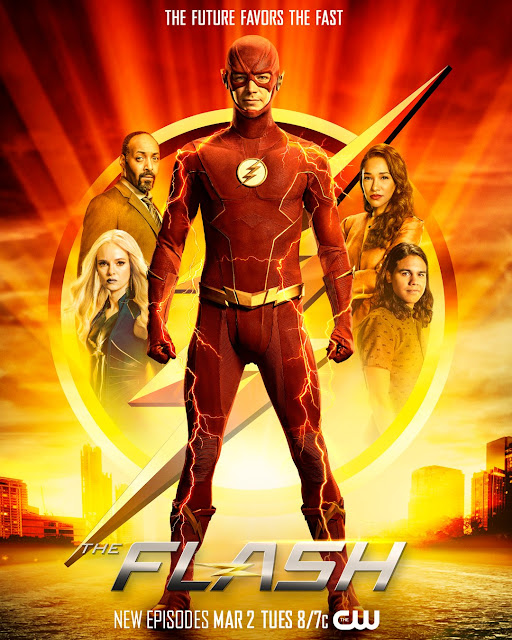






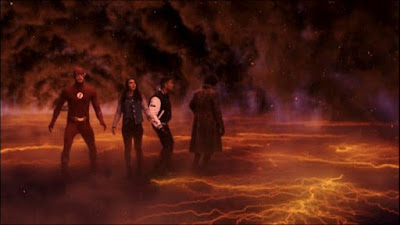

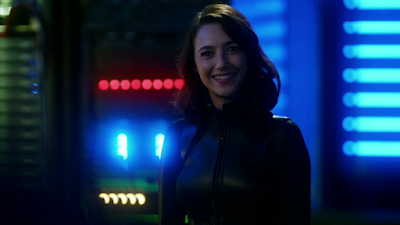
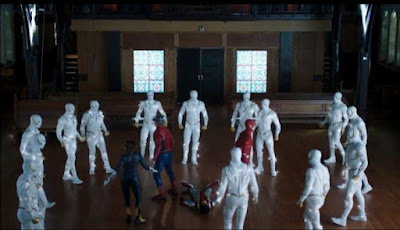



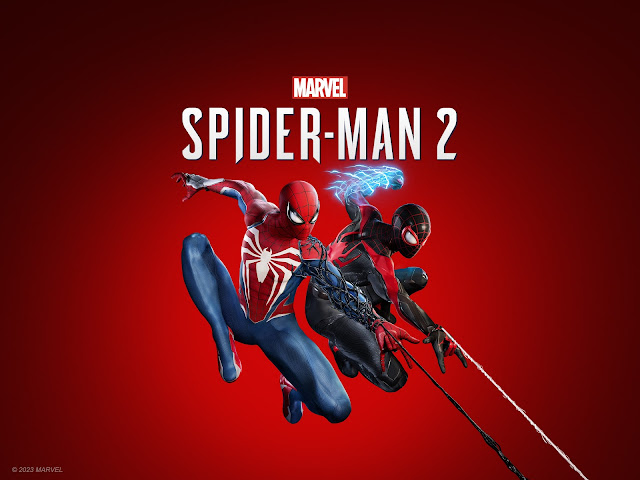
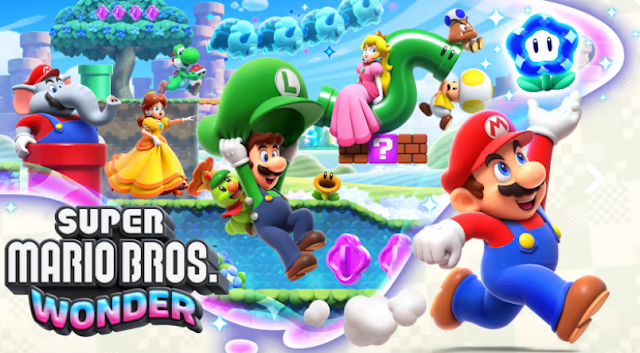

Comments
Post a Comment